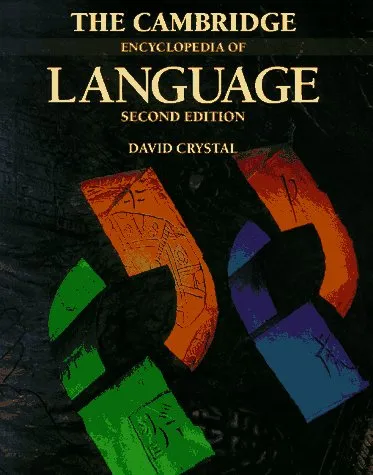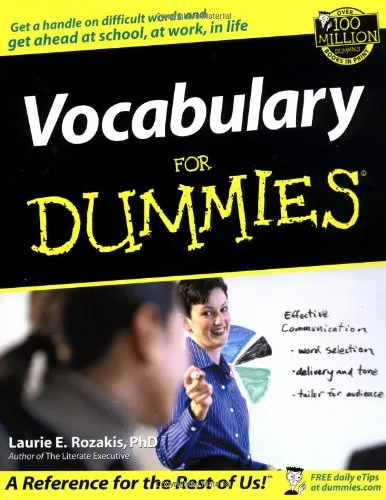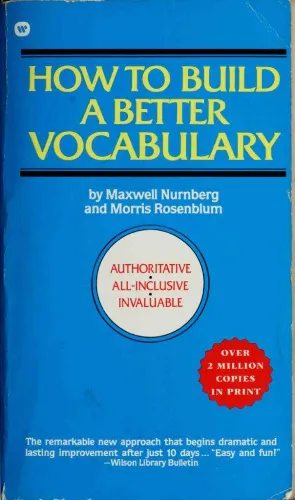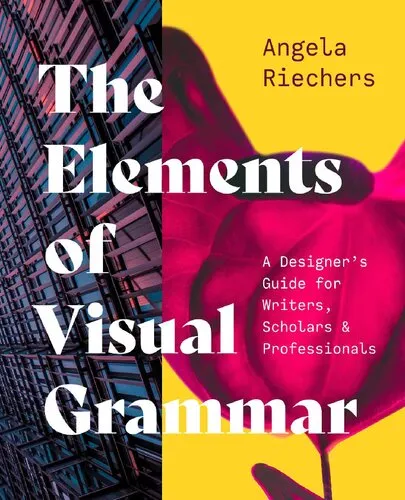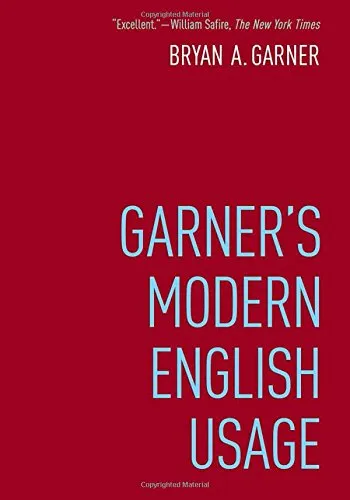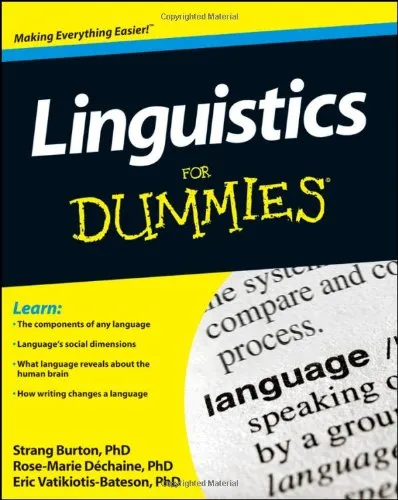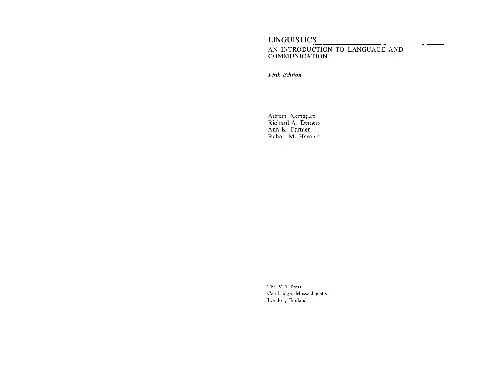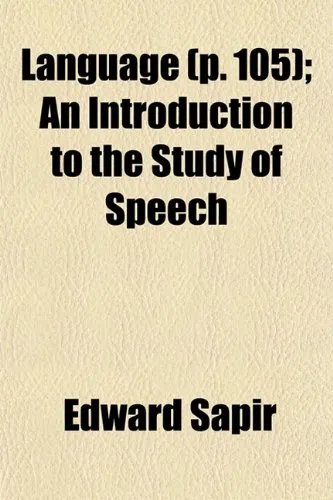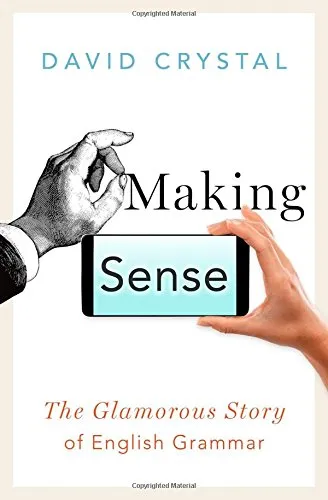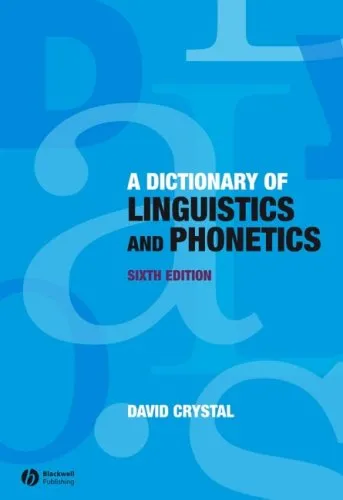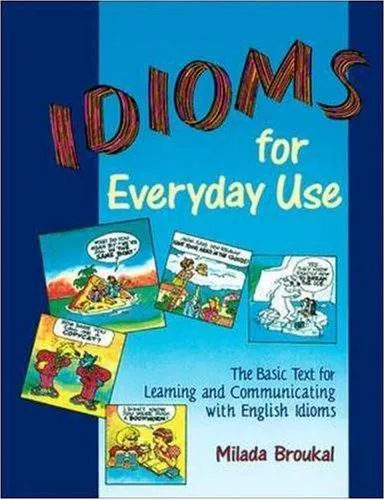The Cambridge encyclopedia of language
4.5
Reviews from our users

You Can Ask your questions from this book's AI after Login
Each download or ask from book AI costs 2 points. To earn more free points, please visit the Points Guide Page and complete some valuable actions.Related Refrences:
Welcome to the fascinating world of language, explored in depth through 'The Cambridge Encyclopedia of Language' authored by David Crystal. This comprehensive reference is essential for anyone keen on understanding the myriad elements of human communication. Whether you are a linguist, educator, student, or simply a language enthusiast, this encyclopedia offers a wealth of information to satisfy your curiosity and enrich your knowledge.
Summary of the Book
At its core, 'The Cambridge Encyclopedia of Language' serves as a broad and insightful overview of language, covering an array of topics that highlight the diversity and complexity of linguistic phenomena. The book is structured to guide the reader through the historical and contemporary landscape of language studies.
The book begins by exploring the origin of language and its early development, contemplating theories ranging from evolutionary processes to cultural influences. It delves into the structure of language, elucidating grammar systems, syntax, phonetics, and semantics with clarity and precision. Readers gain insight into spoken and written communication forms, understanding how languages have evolved over time and adapted to societal changes.
Furthermore, David Crystal addresses the role of language in social identity, power dynamics, and its impact on culture. The book also takes a closer look at the various linguistic disciplines, including sociolinguistics, psycholinguistics, and applied linguistics, offering a comprehensive view of how language is used in multifaceted ways across different contexts and communities.
Key Takeaways
- Language is a dynamic and evolving construct, which is intrinsically linked to human thought, identity, and society.
- The structure of language, encompassing phonology, morphology, syntax, and semantics, is fundamental in understanding how language conveys meaning.
- Linguistic diversity reflects cultural diversity; preserving languages is paramount to maintaining cultural heritage.
- Language acquisition theories provide insight into how humans learn language, highlighting both universal patterns and individual variances.
- The field of linguistics is interdisciplinary, intersecting with psychology, anthropology, and computer science, among others.
Famous Quotes from the Book
"Language is the fabric of thought, the medium through which ideas are woven." - David Crystal
"The richness of human language provides a window into the complexity of the human mind." - David Crystal
Why This Book Matters
The significance of 'The Cambridge Encyclopedia of Language' lies in its exhaustive examination of language from multiple perspectives. Language is not merely a tool for communication but a profound reflection of human cognition, social interaction, and cultural evolution. David Crystal successfully compiles a comprehensive body of work that is both informative and accessible, making it an invaluable resource for understanding the essence of linguistic studies.
Additionally, the book matters because it raises awareness about the importance of language preservation in a rapidly globalizing world where minority languages are at risk of extinction. Language is intrinsic to cultural identity, and losing a language equates to losing a vital part of history and human diversity.
For educators and students, the encyclopedia acts as an excellent pedagogical tool, offering insights and knowledge that are essential in cultivating a deeper understanding of linguistics. By enlightening readers about the complexities and beauties of language, the book contributes significantly to the academic and public discourse on the subject.
Free Direct Download
You Can Download this book after Login
Accessing books through legal platforms and public libraries not only supports the rights of authors and publishers but also contributes to the sustainability of reading culture. Before downloading, please take a moment to consider these options.
Find this book on other platforms:
WorldCat helps you find books in libraries worldwide.
See ratings, reviews, and discussions on Goodreads.
Find and buy rare or used books on AbeBooks.
1481
بازدید4.5
امتیاز0
نظر98%
رضایتReviews:
4.5
Based on 0 users review
Questions & Answers
Ask questions about this book or help others by answering
No questions yet. Be the first to ask!
